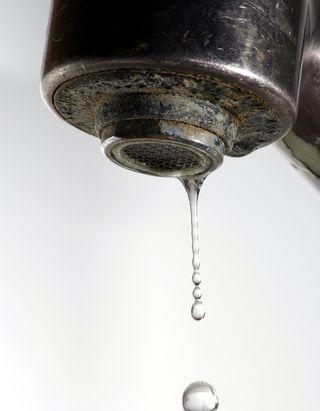If you’re a city kid like me, you’ve never been very concerned about hard water. But step outside the city limits of Minneapolis and St. Paul, and hard water is something to think about when buying a home. More specifically, treating hard water with a water softener can become a necessity.
Hard water is defined as having high mineral content, and is formed when water percolates through deposits of calcium and magnesium-containing minerals such as limestone, chalk and dolomite. The U.S. Geological Survey Office estimates that 85% of homes in the US have problems with hard water, which results in hard water stains, spots, and scale, and can lead to itchy skin.
The general range of water hardness begins with soft water at less than one grain per gallon, all the way up to extremely hard with over ten grains per gallon. The water of Minneapolis and St. Paul (as well as Bloomington, New Hope, and Crystal) fall into the range of moderately hard, with four to five grains per gallon. In first-ring suburbs, like Woodbury and Edina, the number rises all the way up to extremely hard, with upwards of 17 grains per gallon—some third-ring cities reaching into the mid 20s.

The two most effective types of water softeners are ion exchange, and membrane softening. In an ion exchange system, small plastic beads, coated with sodium, remove hardness. The beads have a charge that causes hard minerals to stick, releasing sodium into the water. Membrane softening forces water through a porous material, physically removing minerals and other contaminants from the water.
When looking for homes in an area with hard water (search online for "hard water" in your preferred city, most water treatment company websites list level by location), check for a functioning water softener—in homes with a water softener, the MLS listing will typically indicate whether the unit is owned or rented. Having a water softener installed in the home may slightly increase annual maintenance costs, but the savings in using minimal detergent and keeping clothing and dishes in good condition generally makes up for the cost.
Have a question or a topic you'd like to see covered on the blog? Email us, post a comment to Facebook, or tweet us @HomesMSP! (And go ahead—like or follow us while you're at it!)
Angela Anderson, Realtor, Results Support Services: EMAIL — BIO
Licensed Associate Working with Sharlene Hensrud of RE/MAX Results, and HomesMSP — Sharlene, John, Angela
RELATED ARTICLES:
- Water Softener Installation Defects
- How To Inspect Your Own House, Part 7: Protect Your Water by Preventing Cross-Connections
- A Missing Jumper Wire At The Water Meter

